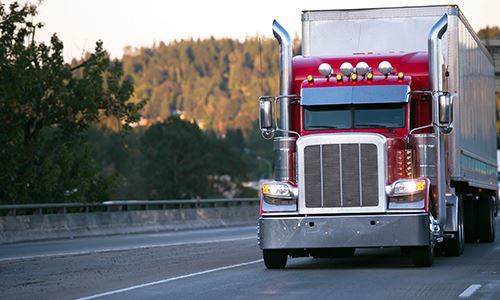Every year, thousands of truck accidents occur on the roads of the United States, resulting in injuries, property damage, and, tragically, loss of life. These accidents can be incredibly complex, involving multiple parties, various factors, and a web of legal issues. Determining liability in a truck accident is a crucial step in ensuring that the responsible parties are held accountable and that victims receive the compensation they deserve.
Factors Contributing to Truck Accidents
Truck accidents can happen for a multitude of reasons, and often, multiple factors are at play. Here are some of the most common factors that contribute to truck accidents:
- Driver Error: Just like in car accidents, driver error is a leading cause of truck accidents. This can include actions such as distracted driving, speeding, reckless driving, and driving under the influence of drugs or alcohol.
- Fatigue: Truck drivers often work long hours and may be susceptible to fatigue. Drowsy driving can impair a driver's ability to react to road conditions, leading to accidents.
- Mechanical Failures: Trucks are complex machines that require regular maintenance. Mechanical failures, such as brake problems or tire blowouts, can lead to accidents.
- Overloaded or Improperly Loaded Trucks: Overloaded or improperly loaded trucks can become unstable and difficult to control, increasing the risk of accidents.
- Weather Conditions: Adverse weather conditions, such as rain, snow, ice, and fog, can make driving hazardous for all vehicles, including trucks.
- Road Conditions: Poorly maintained roads or construction zones can contribute to accidents, especially when drivers are not adequately warned or prepared for changes in road conditions.
Determining Liability
Determining liability in a truck accident can be complex due to the various factors involved. Liability may rest with one or more parties, including:
- Truck Driver: If the truck driver's actions, such as speeding, reckless driving, or driving under the influence, directly contributed to the accident, they may be held liable.
- Trucking Company: The trucking company that employs the driver may also be liable if they failed to properly train, supervise, or monitor their drivers, or if they encouraged unsafe practices, such as unrealistic delivery schedules that incentivize speeding or driving while fatigued.
- Maintenance Provider: If a mechanical failure is found to be the cause of the accident, the company responsible for maintaining the truck may be liable if their negligence contributed to the failure.
- Truck Manufacturer: In cases where a defective part or design flaw in the truck contributed to the accident, the manufacturer may be held liable for producing a faulty product.
- Cargo Loaders: If the accident resulted from an improperly loaded or overloaded truck, the individuals or companies responsible for loading the cargo may bear liability.
- Other Drivers: In some cases, the actions of other drivers on the road may contribute to a truck accident. For example, a car driver who suddenly cuts in front of a truck, causing the truck to swerve and crash, may share liability.
- Government Entities: If poor road maintenance or inadequate signage played a role in the accident, a government agency responsible for road upkeep might be liable.
Proving Liability
Proving liability in a truck accident typically requires a thorough investigation. Here are some steps involved in the process:
- Gather Evidence: Collect evidence from the accident scene, including photographs, witness statements, and police reports. This initial information can help establish the facts of the case.
- Examine the Truck: Inspect the truck for mechanical defects and maintenance issues. This may involve consulting experts in trucking and vehicle maintenance.
- Review Records: Examine the driver's logbooks, the truck's maintenance records, and the trucking company's safety records to determine if any violations or negligence occurred.
- Analyze Driver Behavior: Investigate the driver's actions leading up to the accident, including their compliance with federal and state regulations.
- Consult Experts: In complex cases, experts in accident reconstruction, trucking regulations, and mechanical engineering may be called upon to provide their insights and testimony.
- Legal Representation: It's crucial to consult with an experienced personal injury attorney who specializes in truck accidents. They can help navigate the legal process, negotiate with insurance companies, and represent your interests in court if necessary.
Determining liability in a truck accident is a multifaceted process that involves examining various factors and parties involved. While the truck driver is often the most visible party, responsibility may extend to the trucking company, maintenance providers, manufacturers, and even other drivers or government entities.
If you or a loved one have been involved in a truck accident, seeking legal counsel is essential to ensure that the responsible parties are held accountable and that you receive the compensation you deserve for your injuries and losses. Remember, every truck accident is unique, and a thorough investigation is crucial to establish liability and pursue justice.
At Hanna Allen, PLLC, our experienced team of personal injury attorneys specializes in handling truck accident cases. We are dedicated to providing you with the support and representation you need during this challenging time.
Contact us today to schedule a free consultation and learn more about how we can help you.

